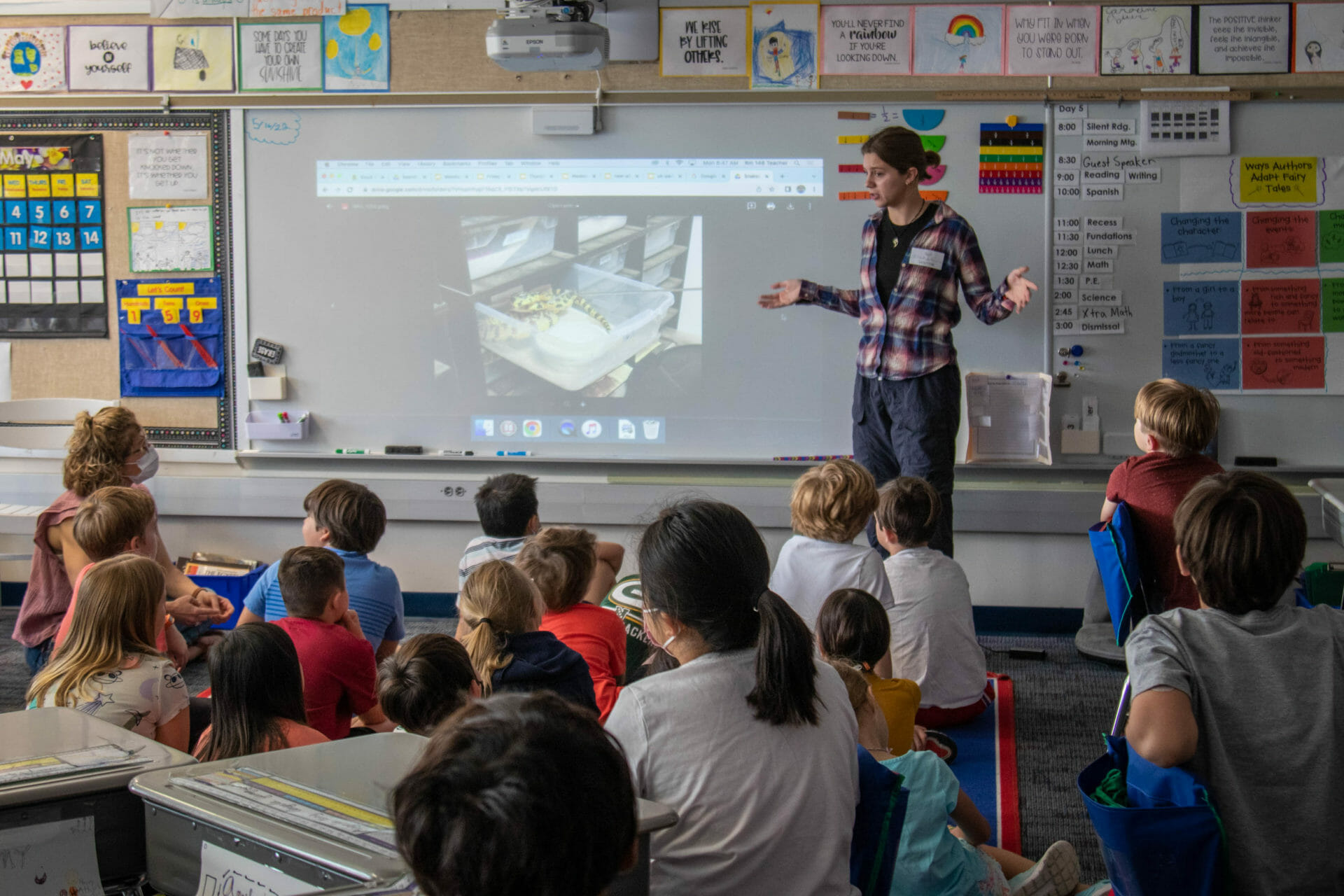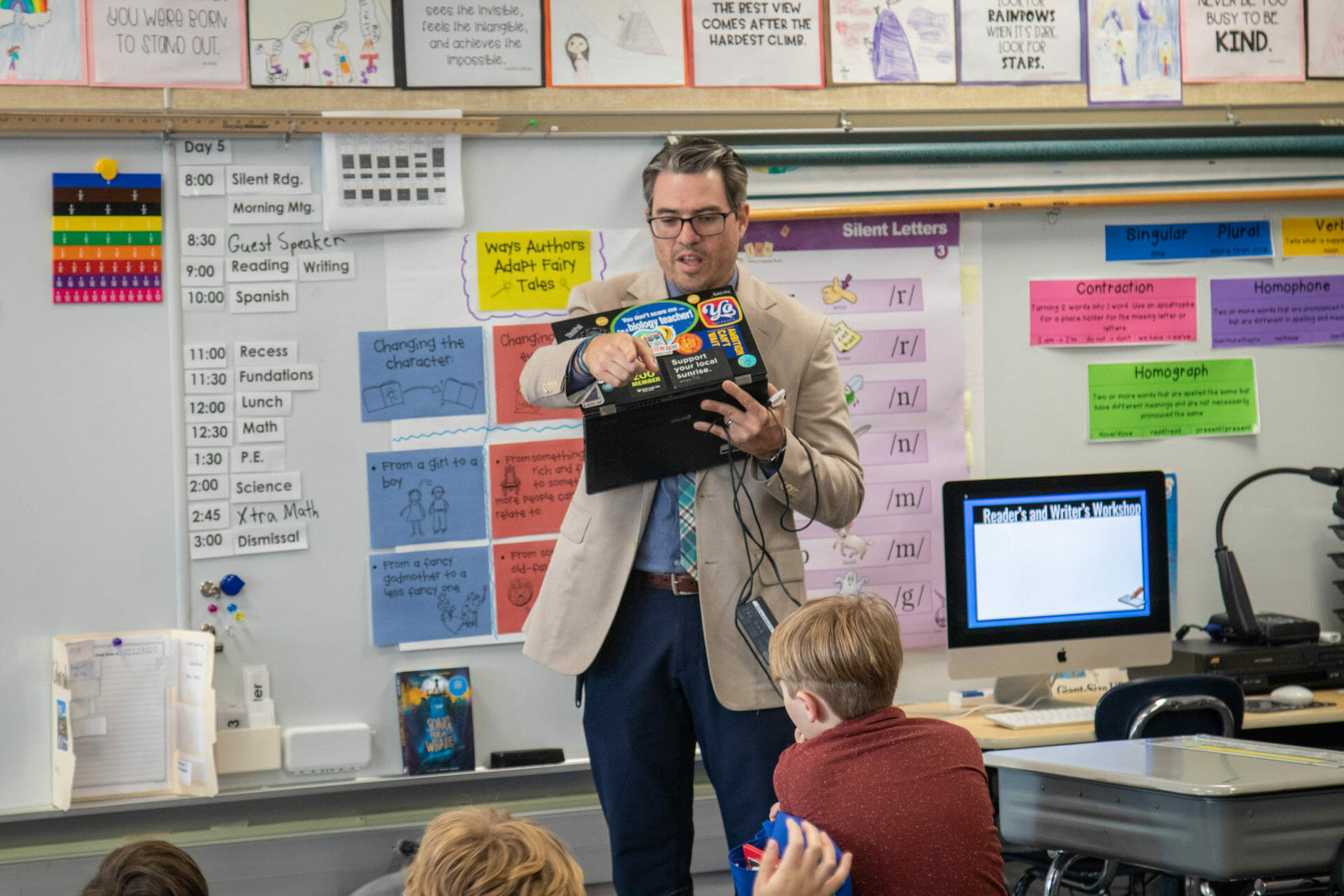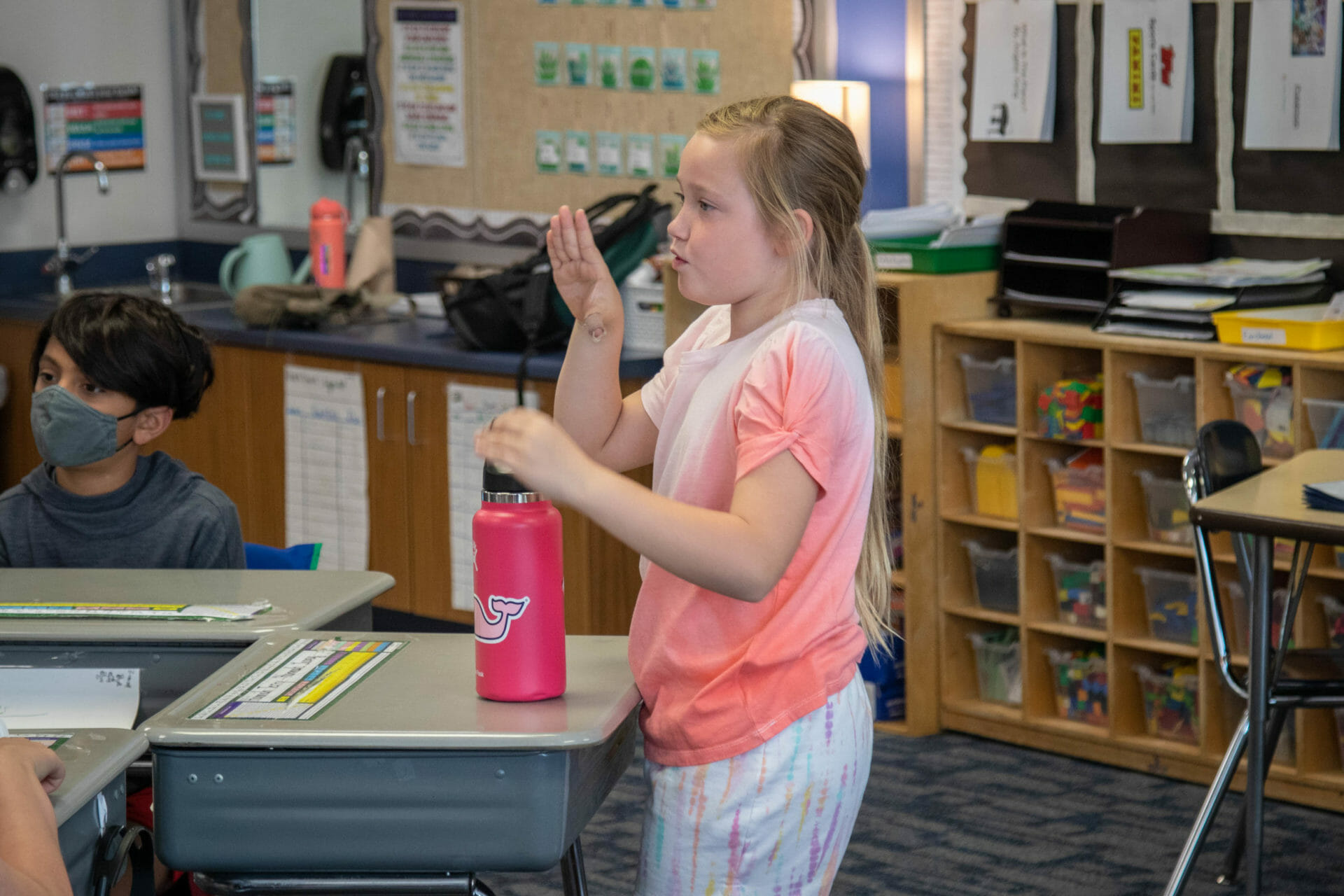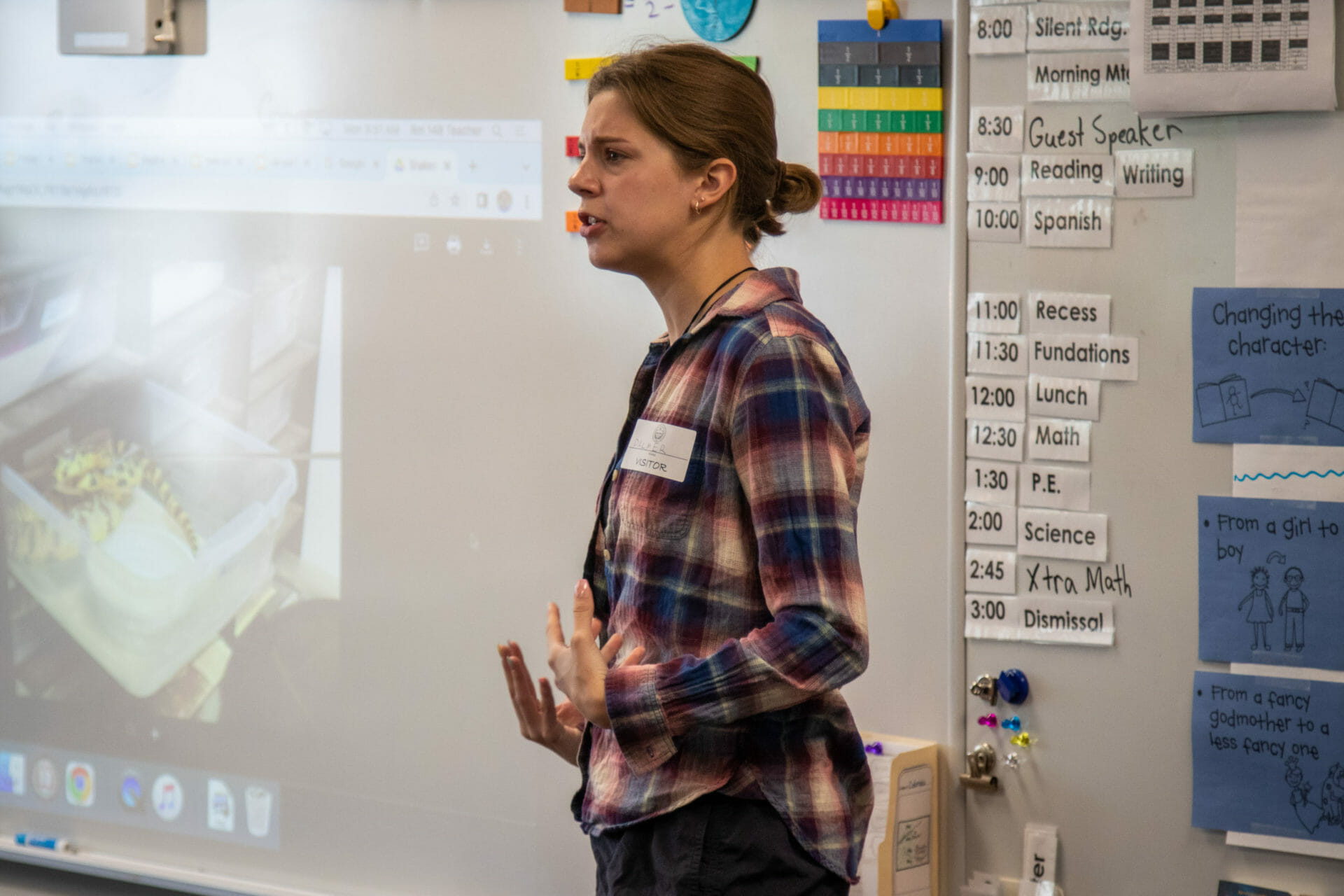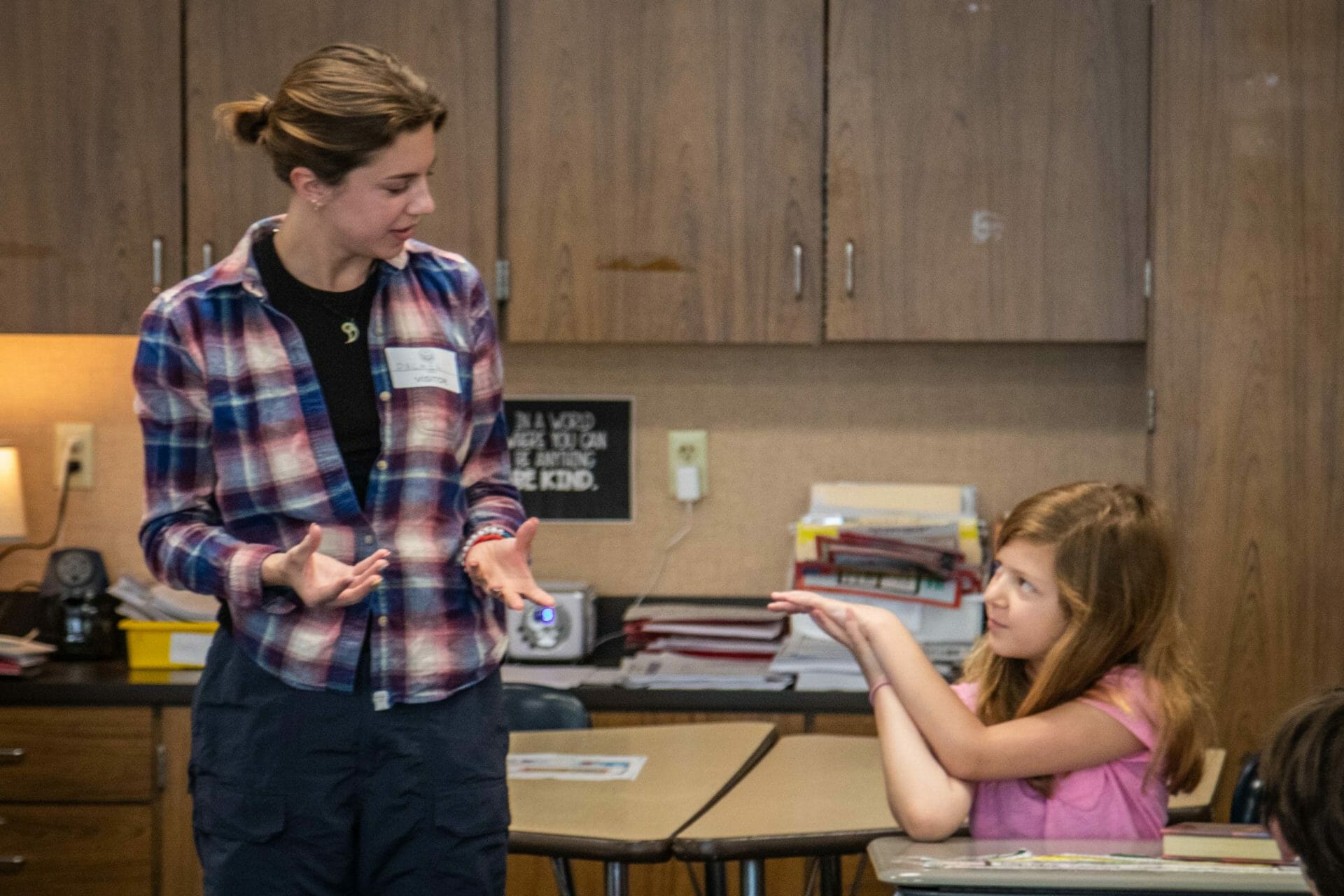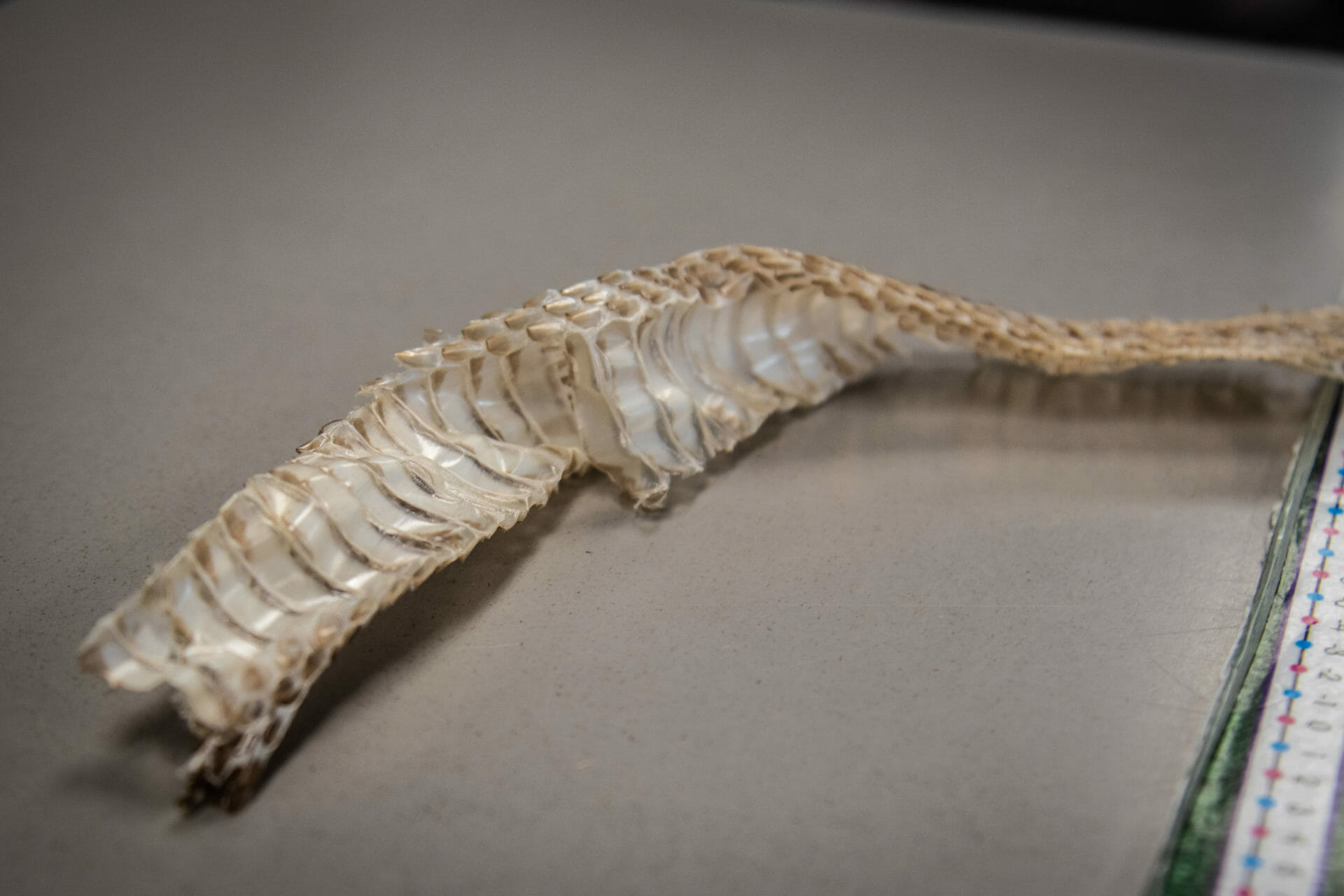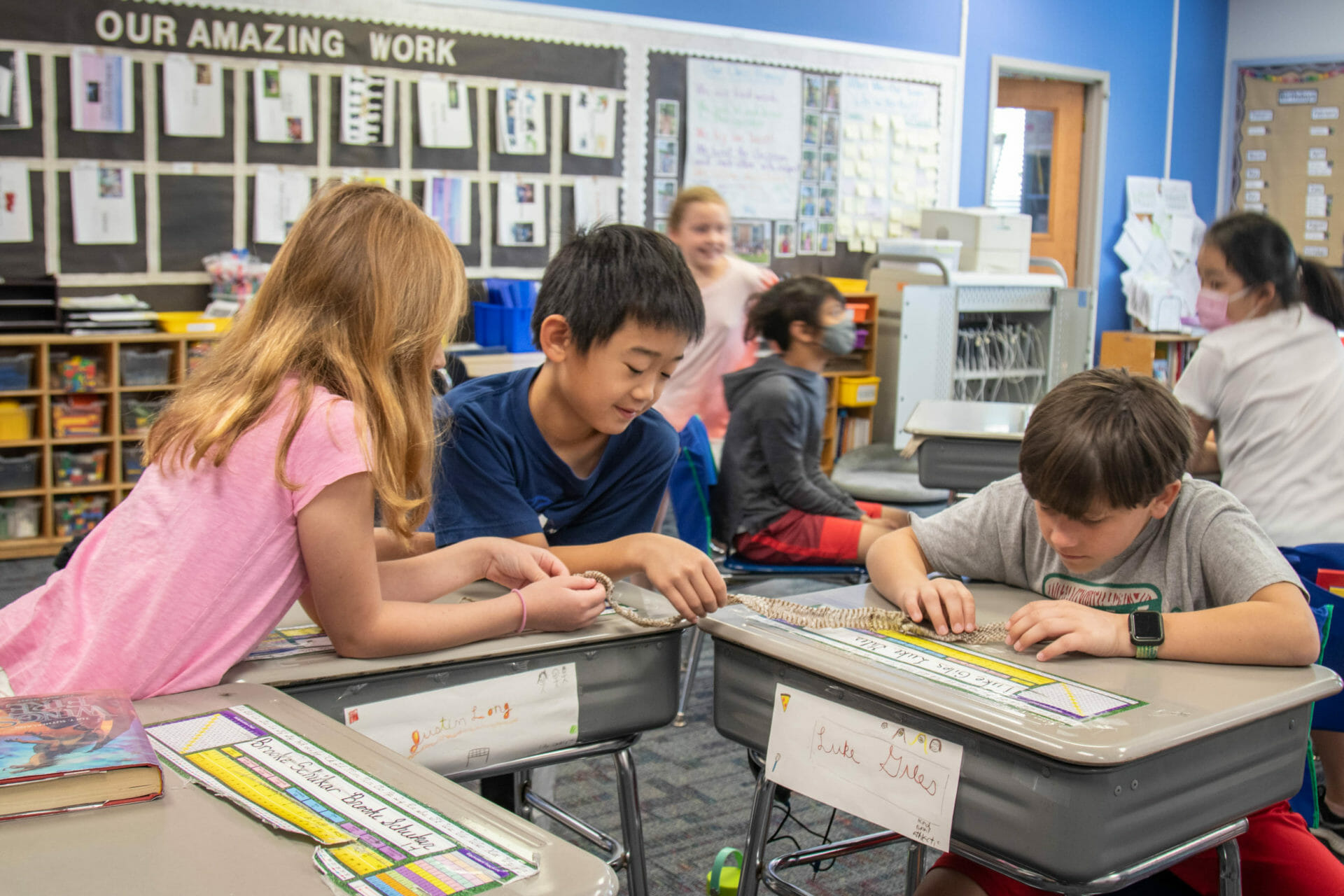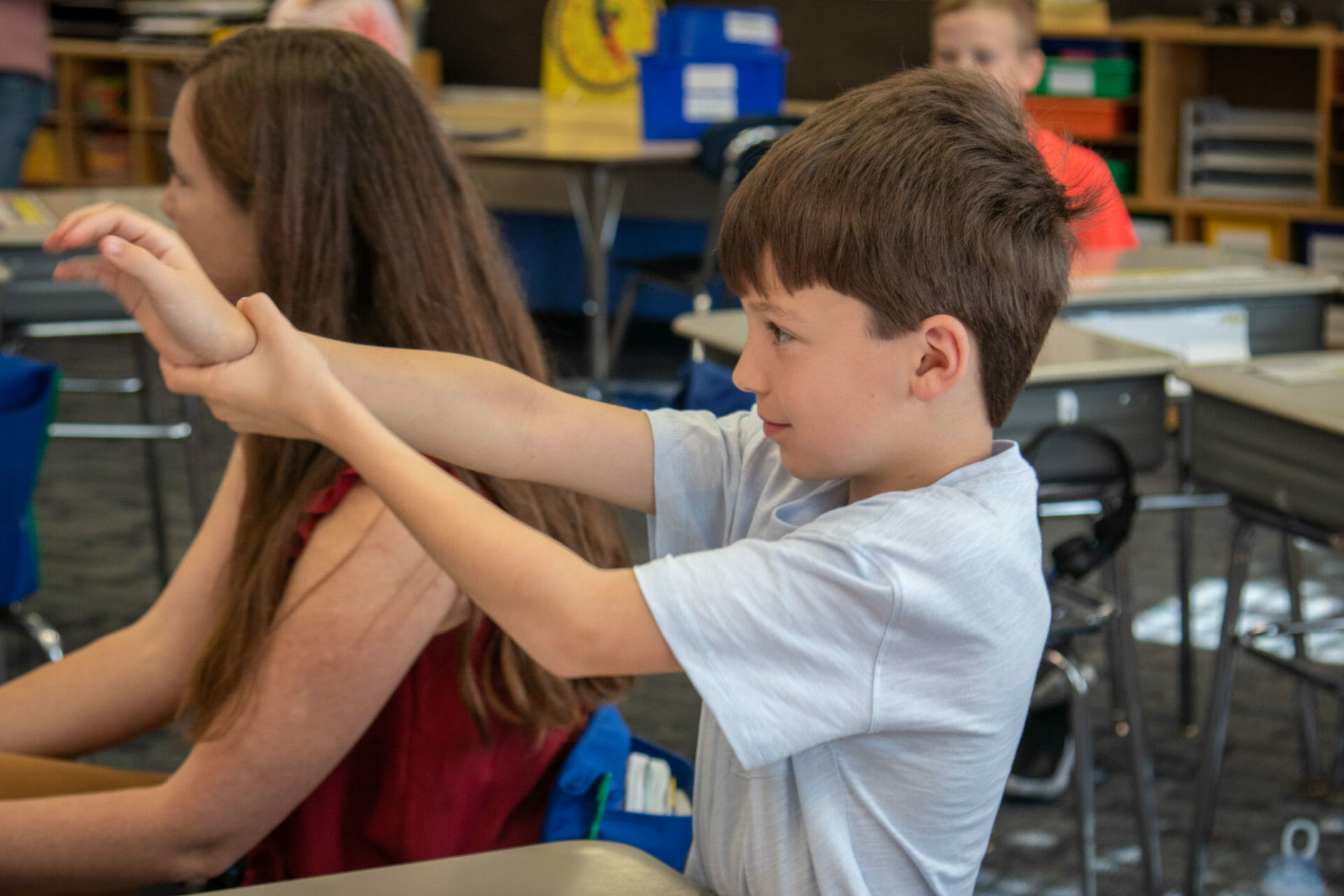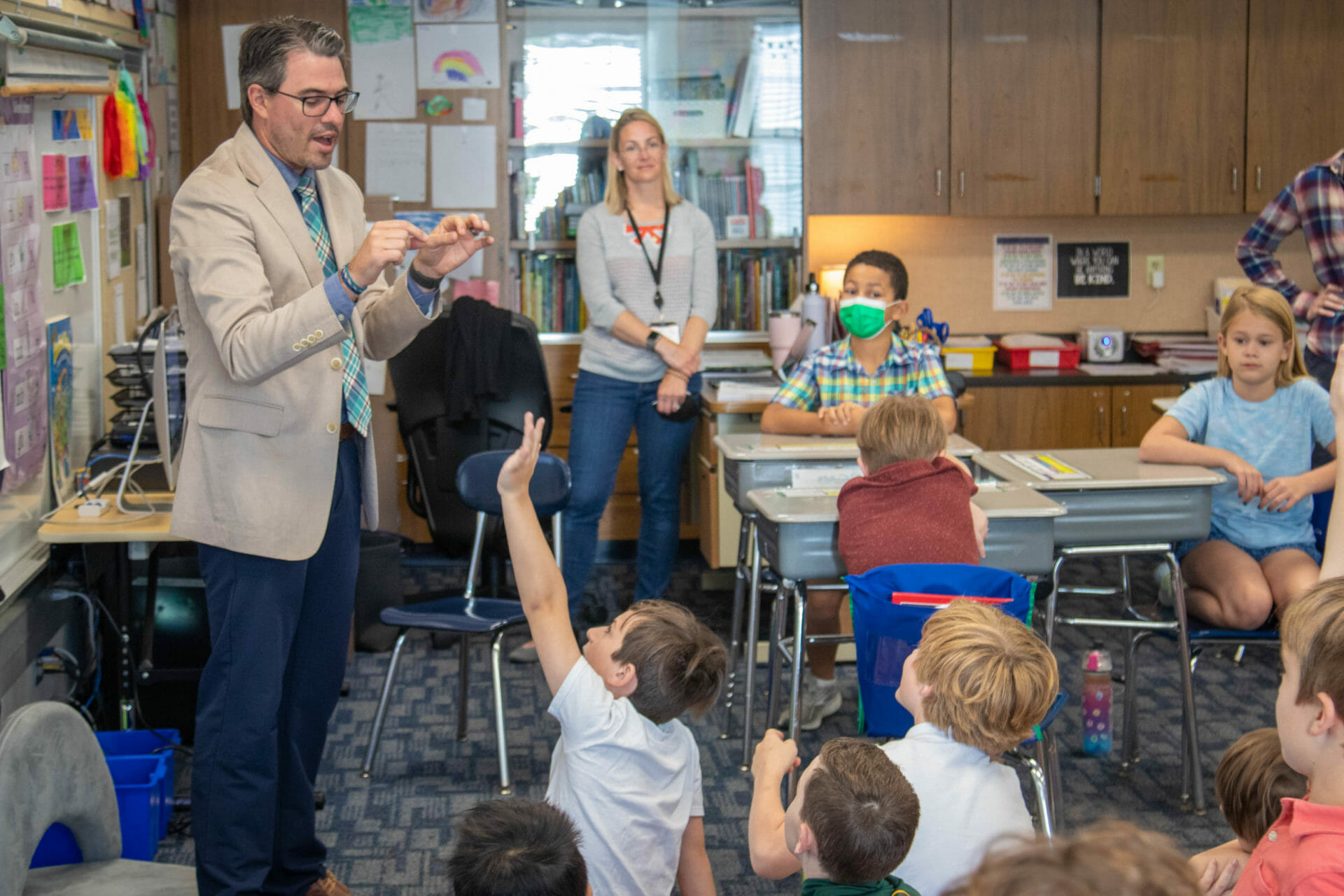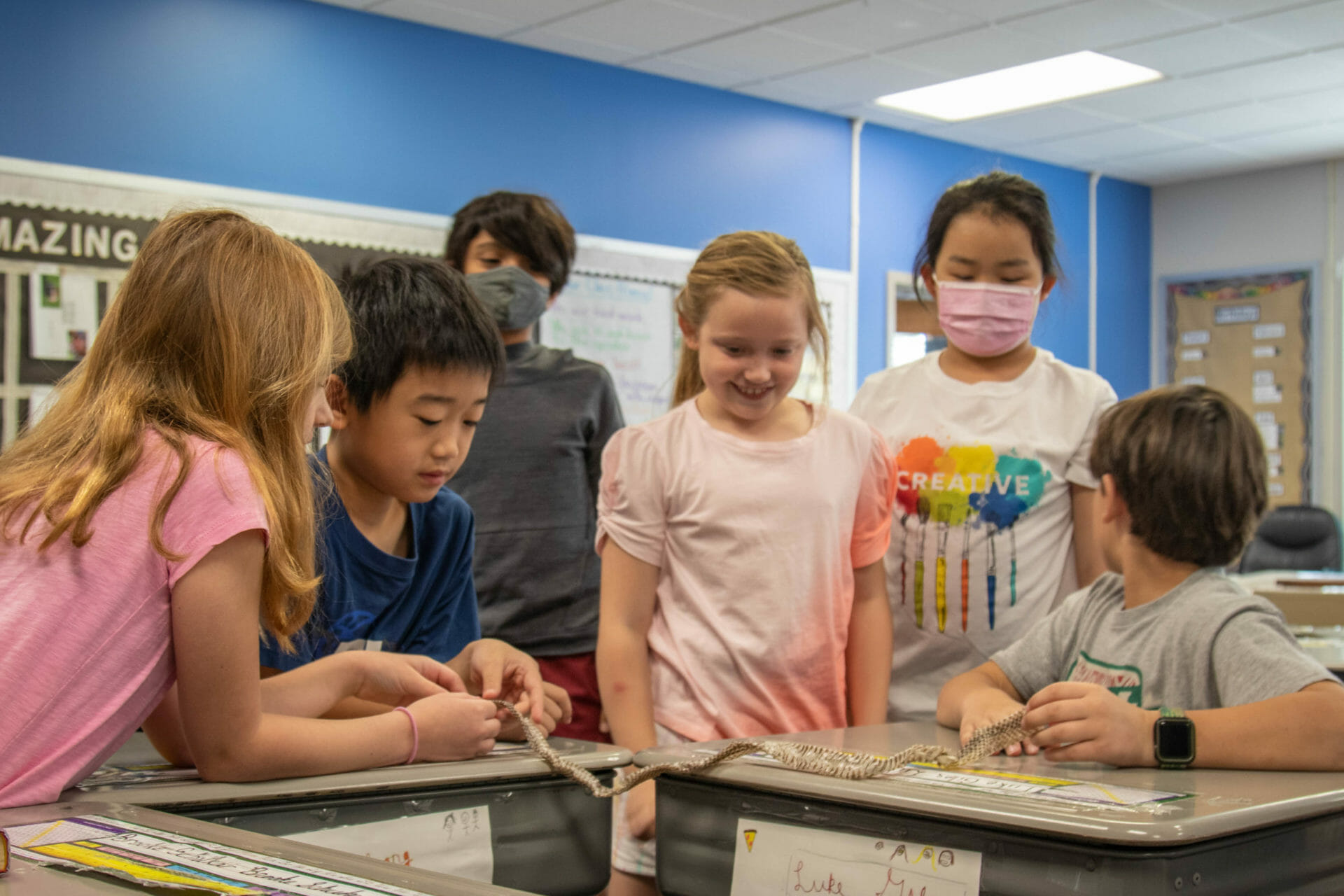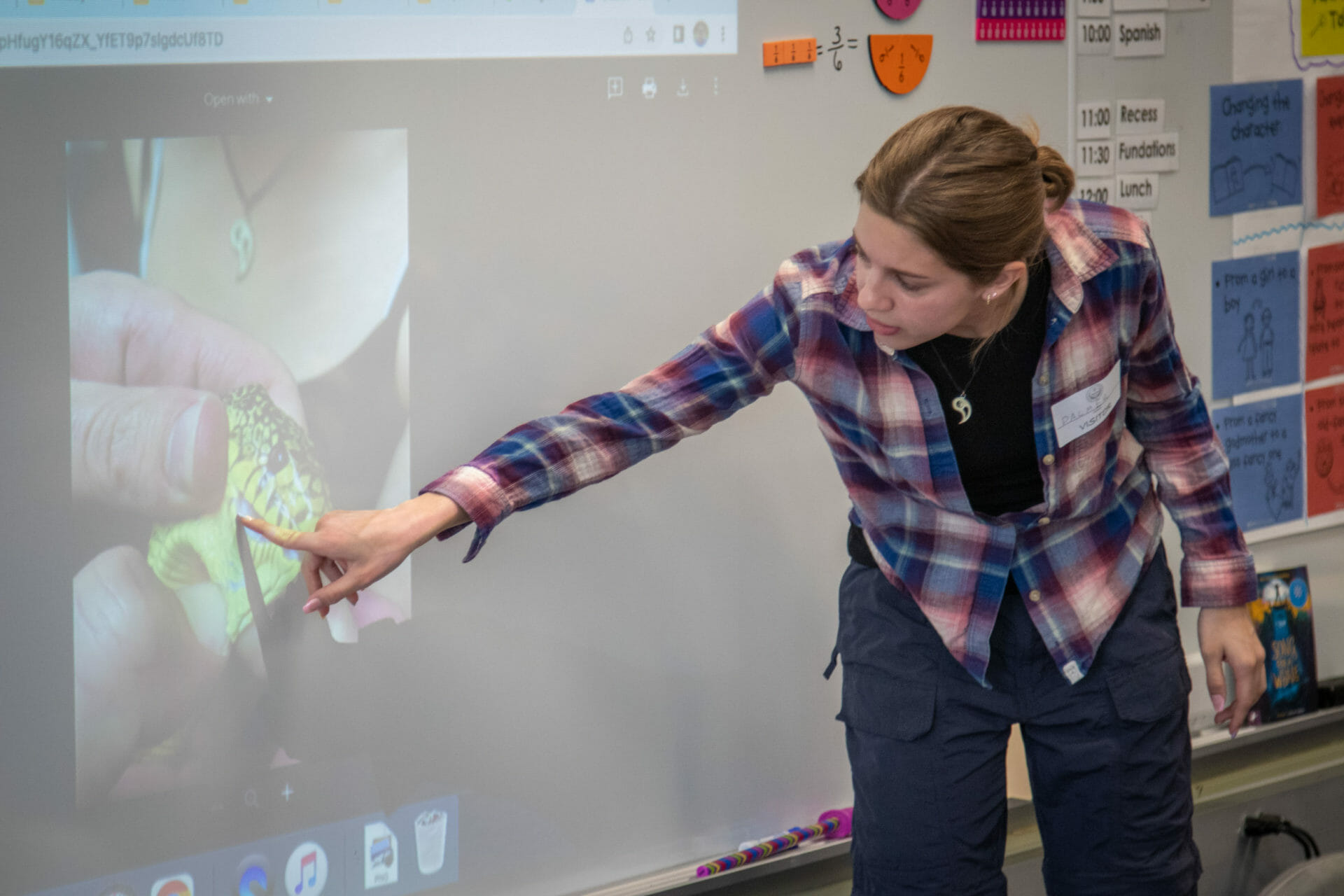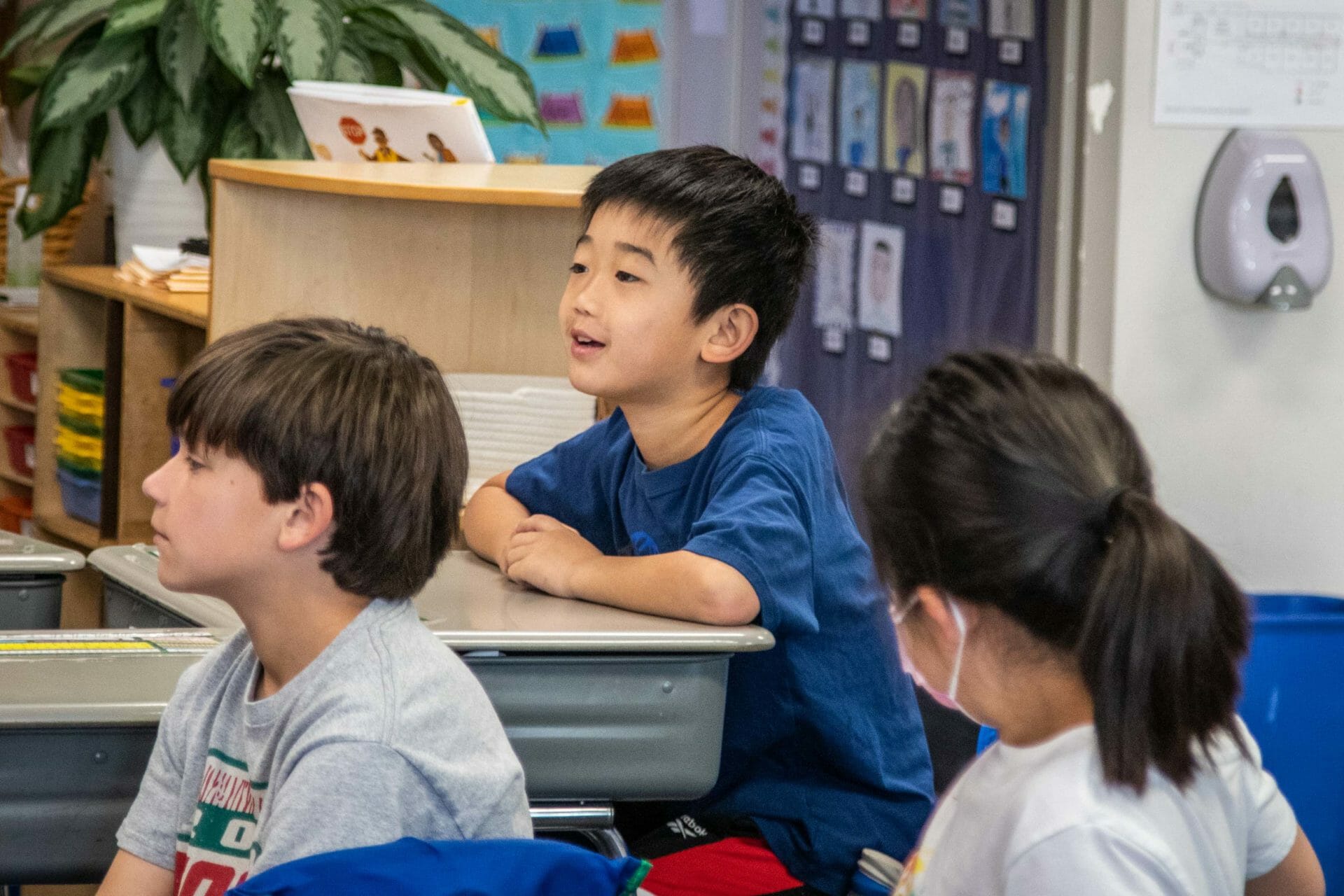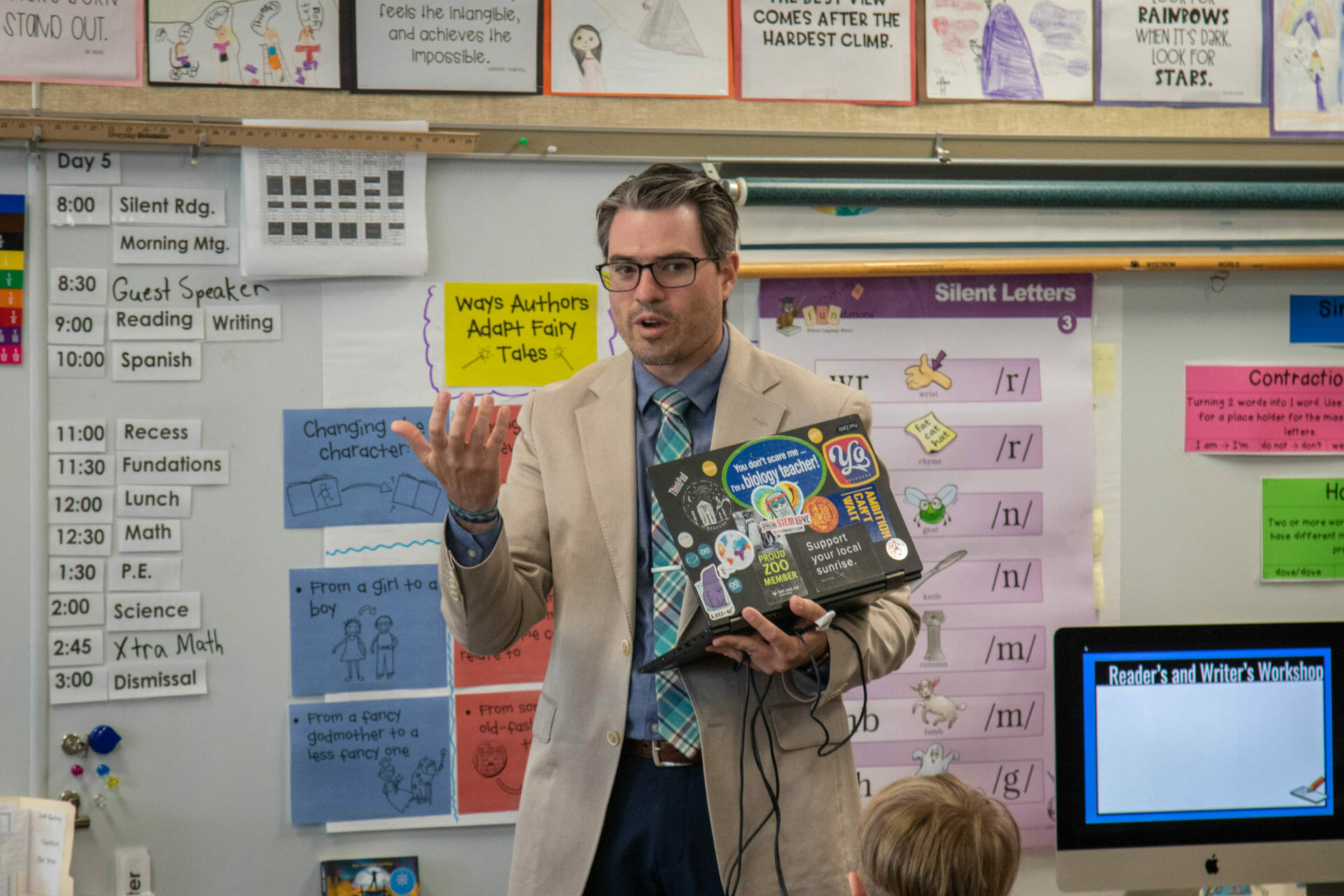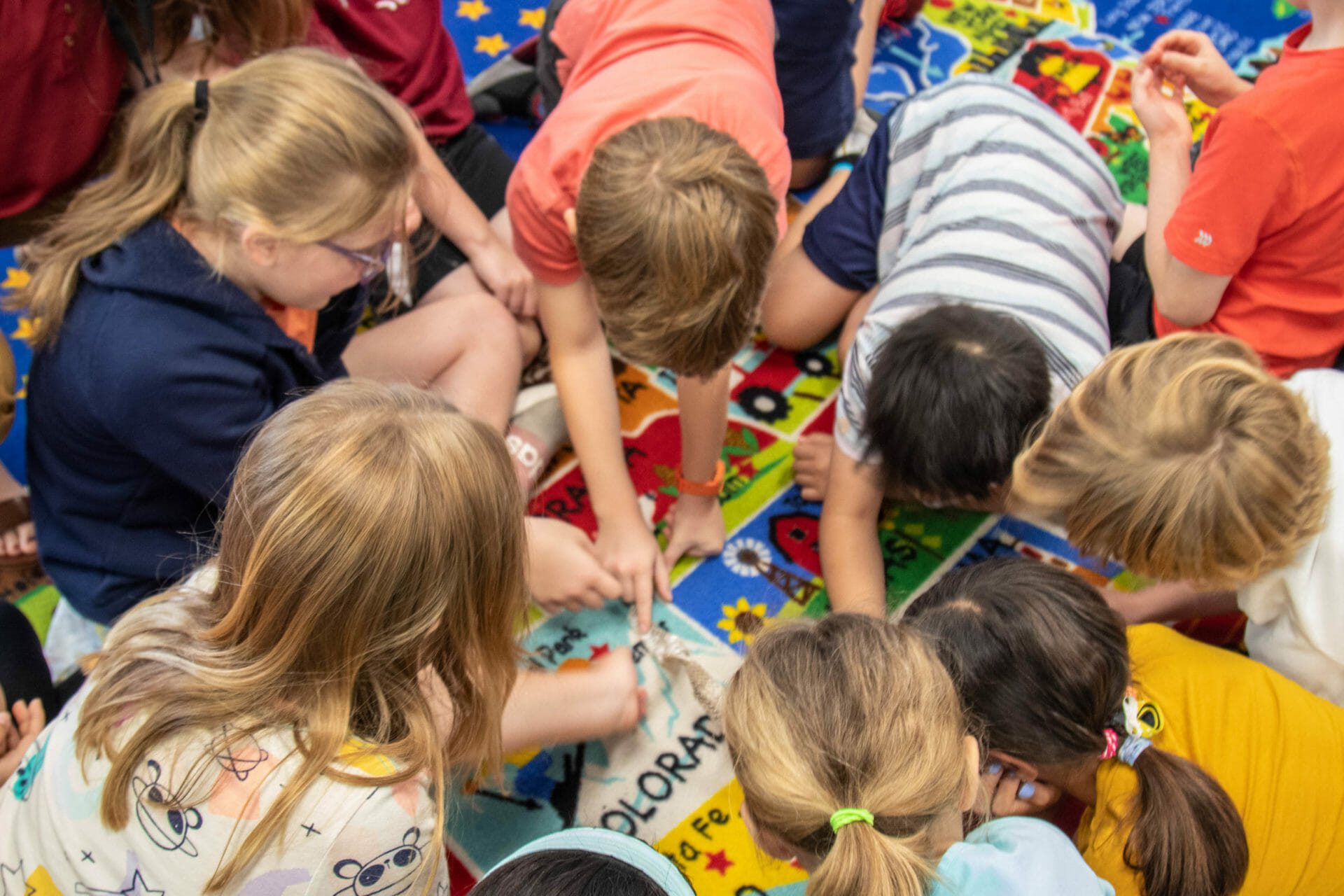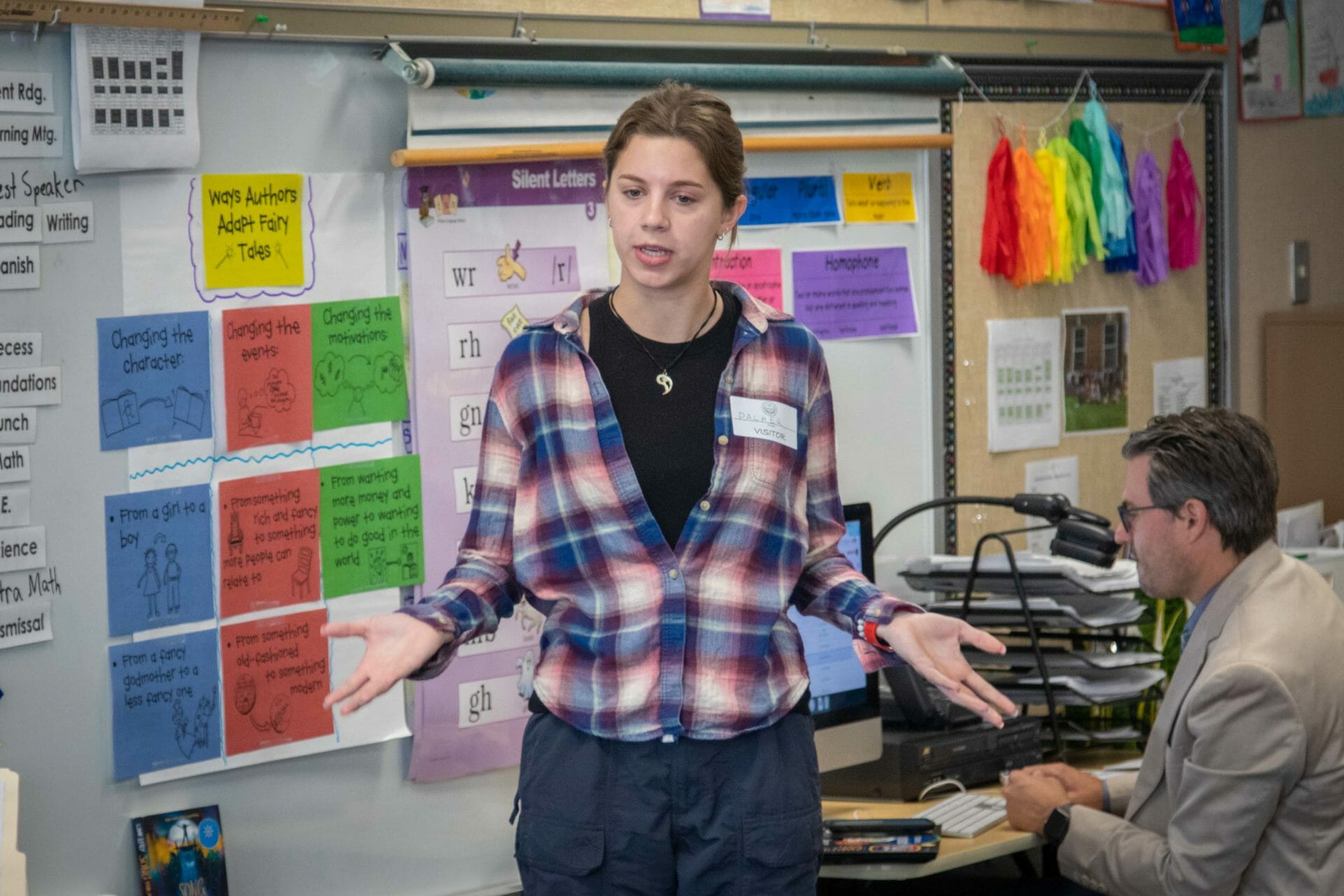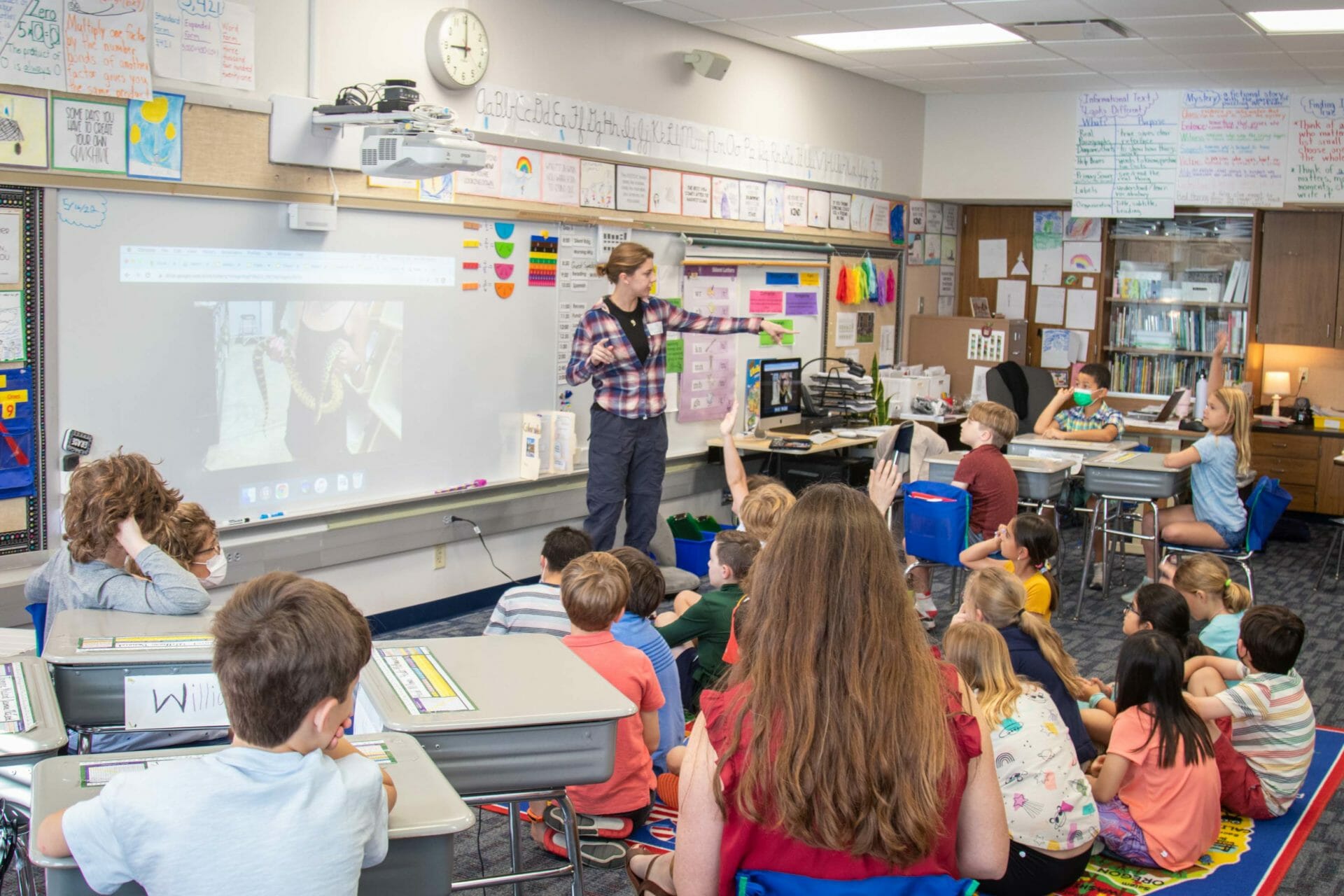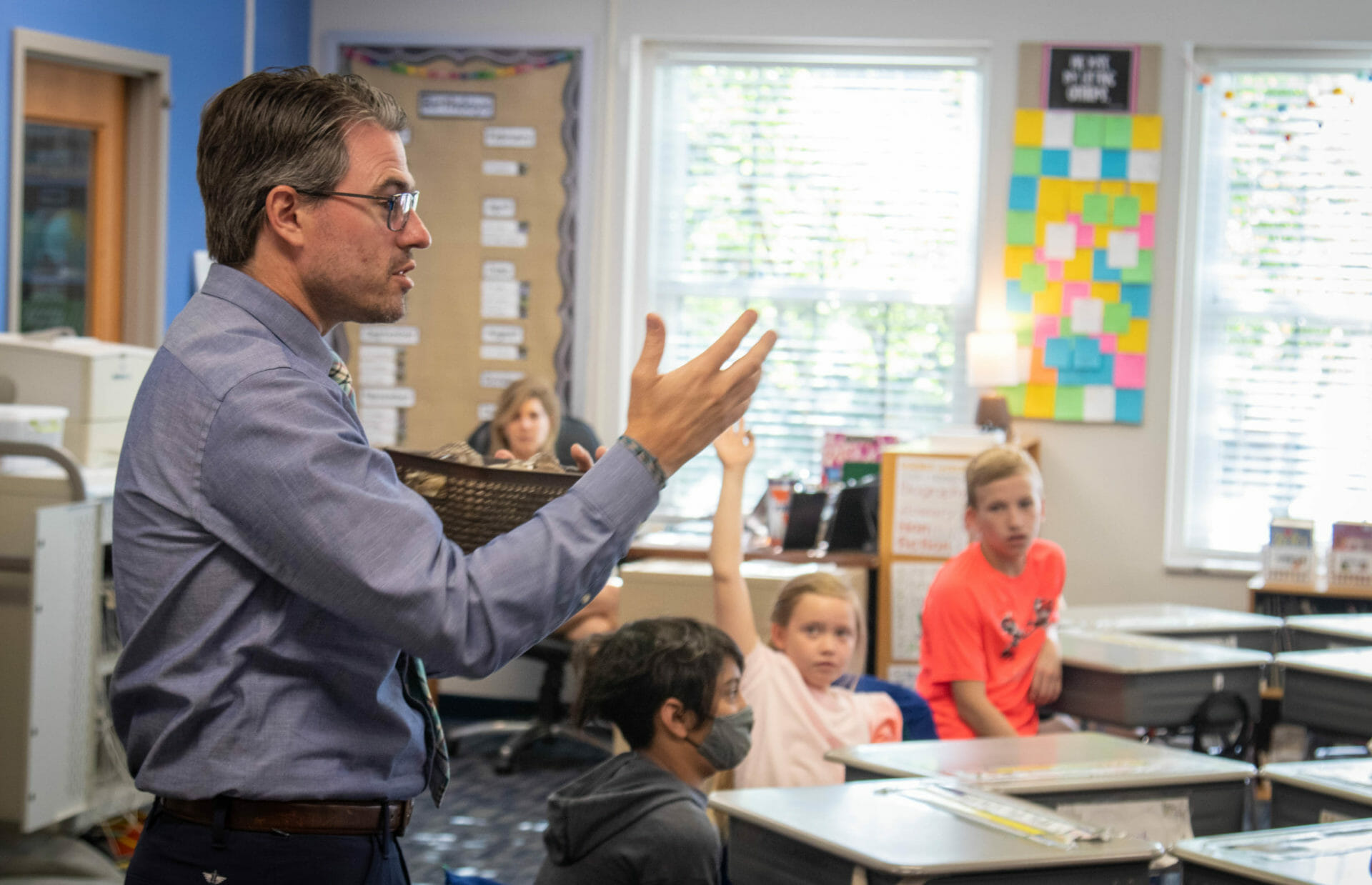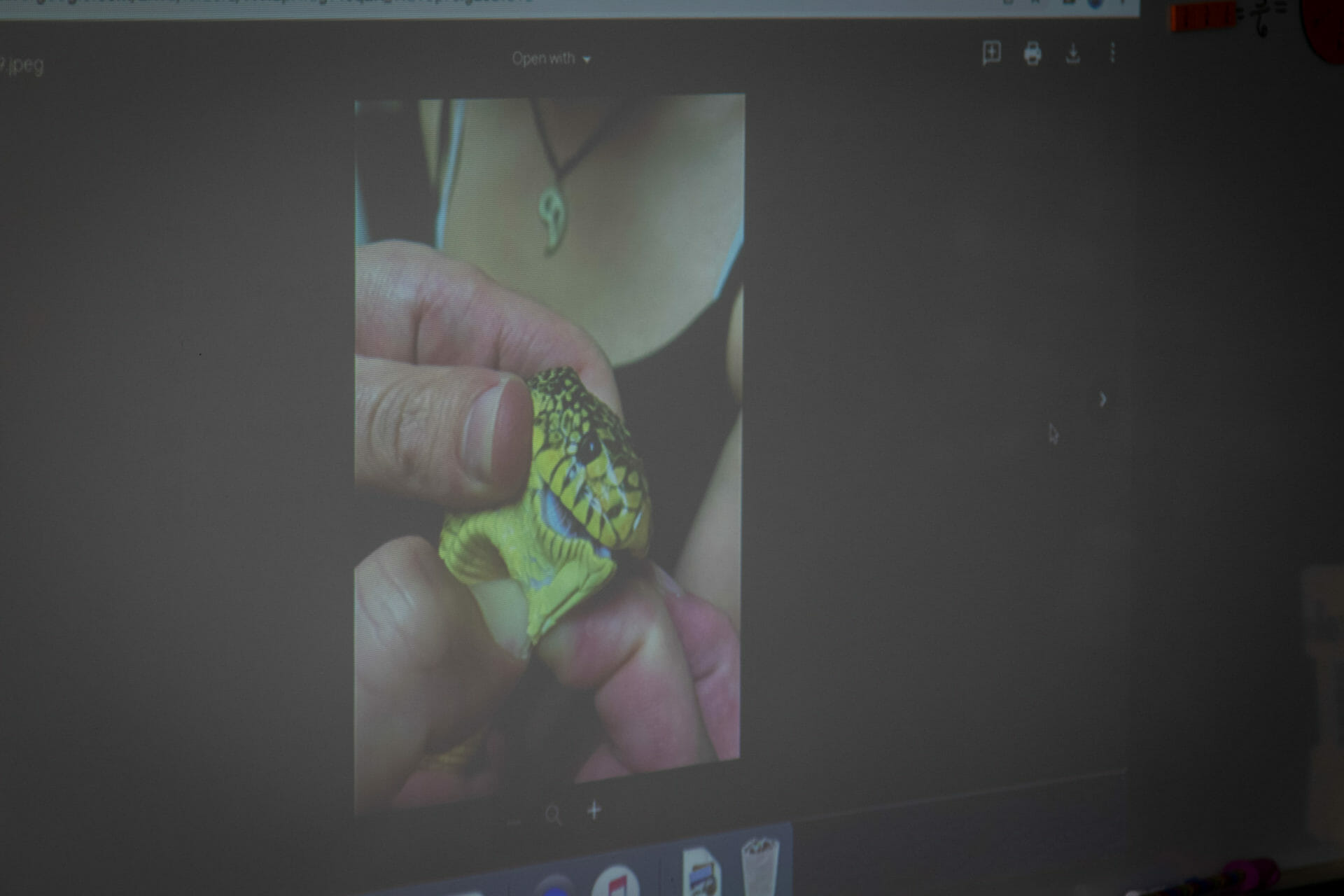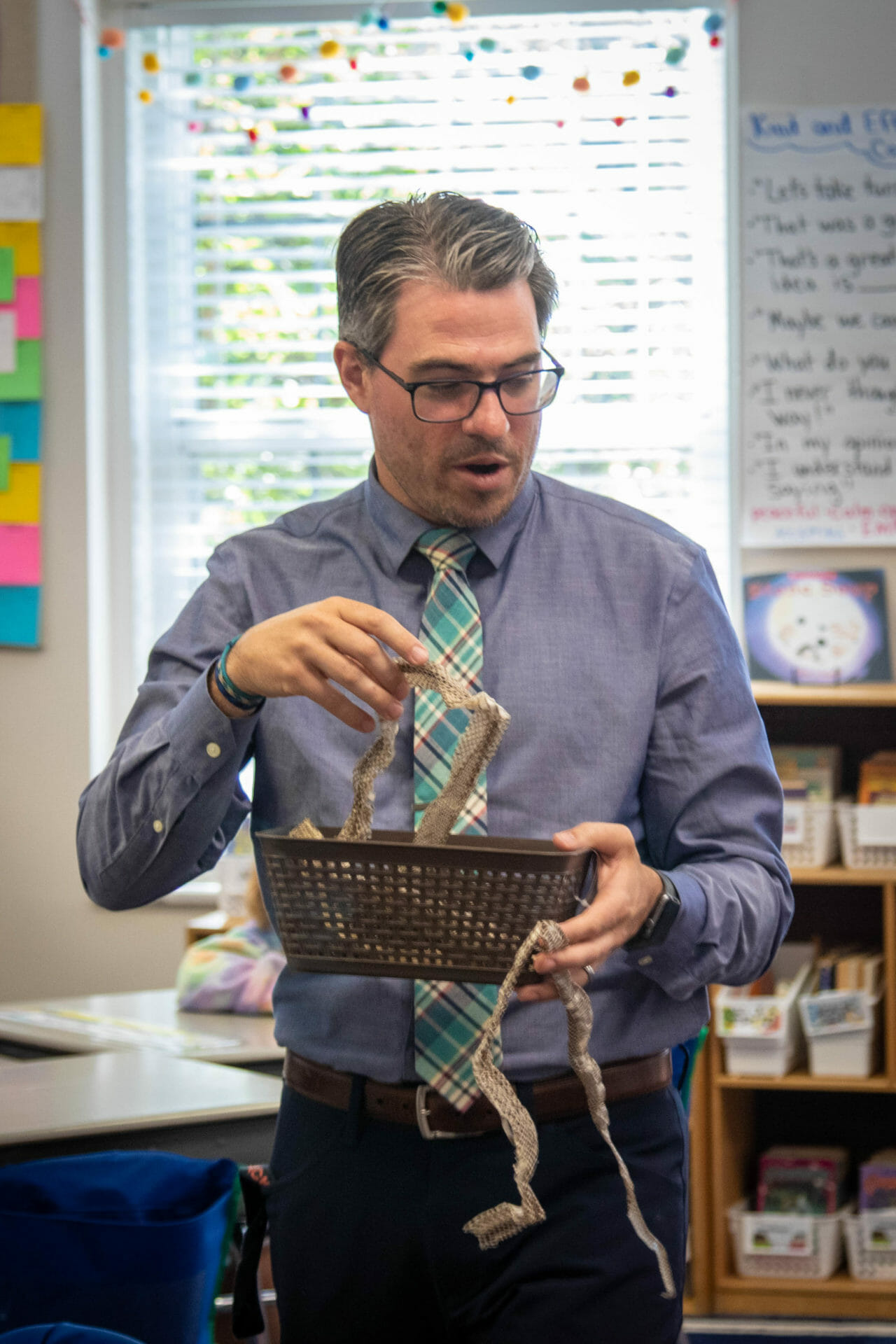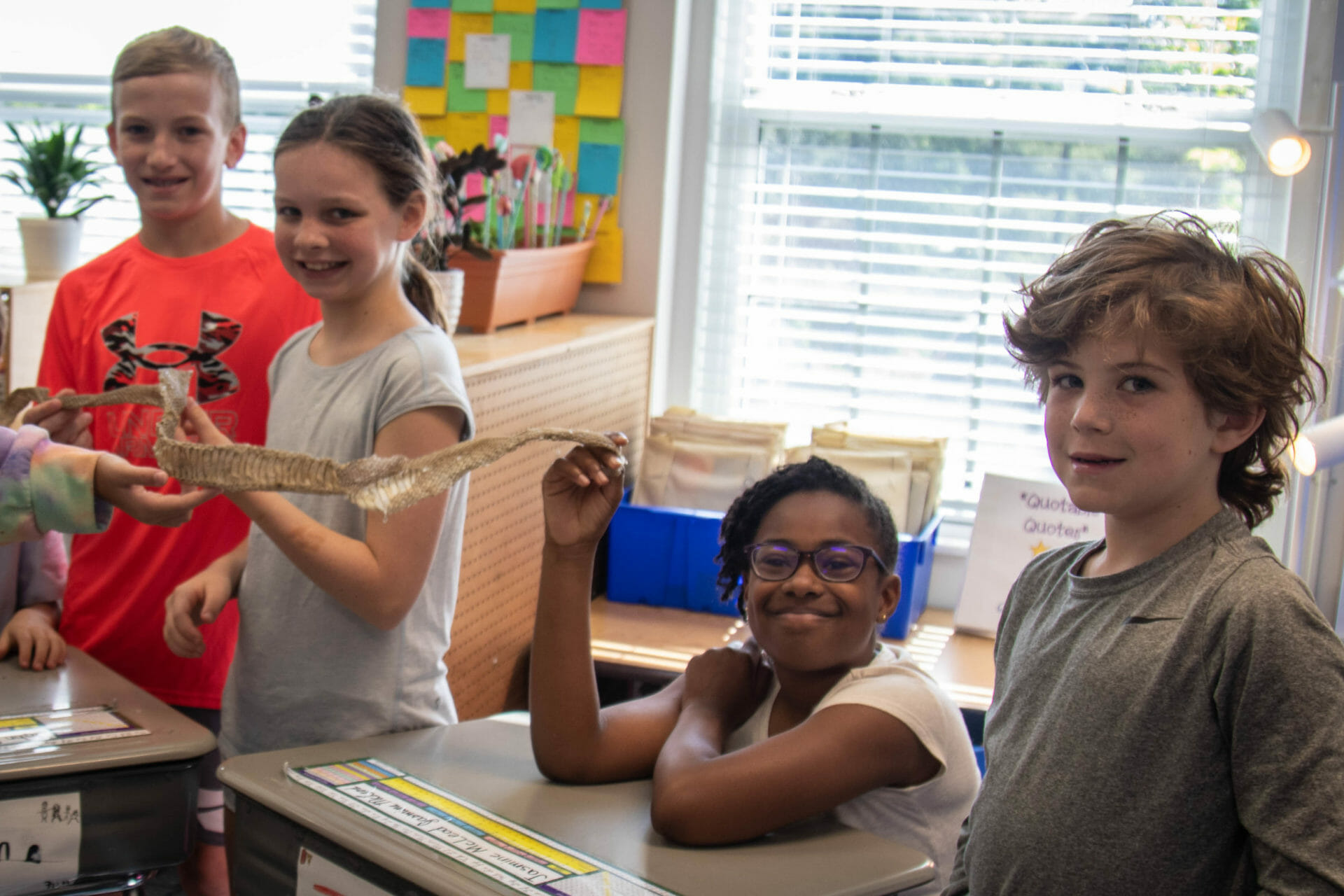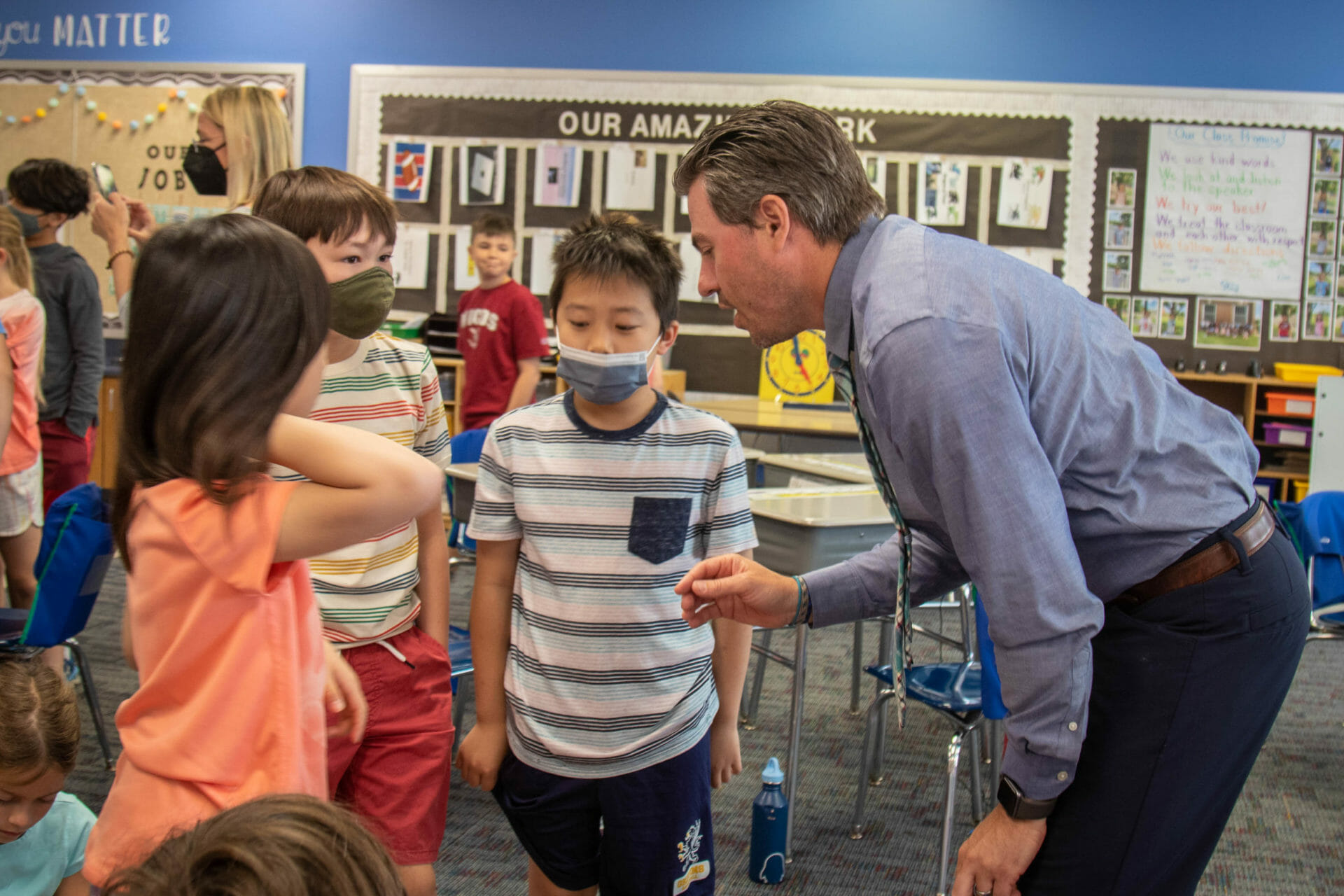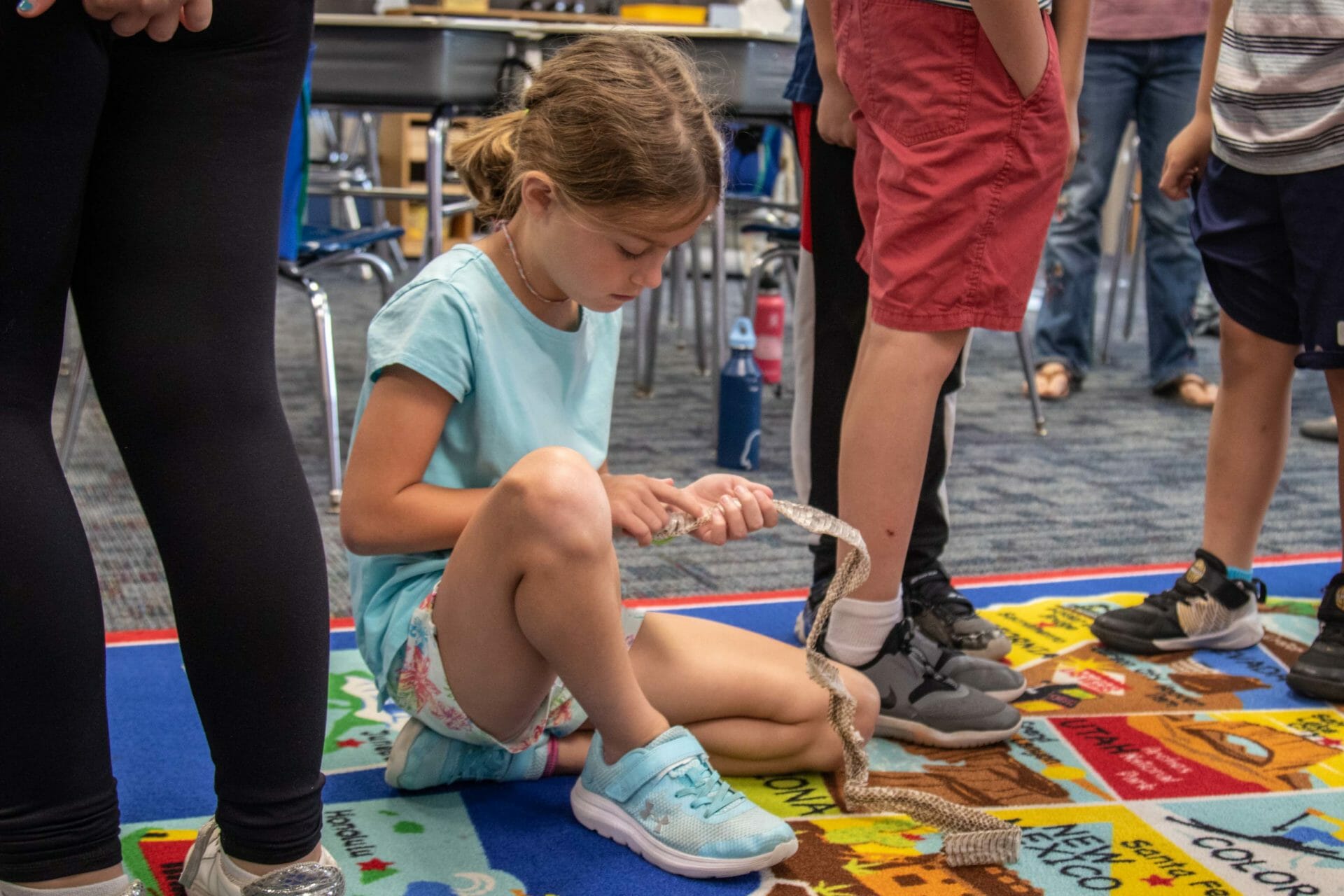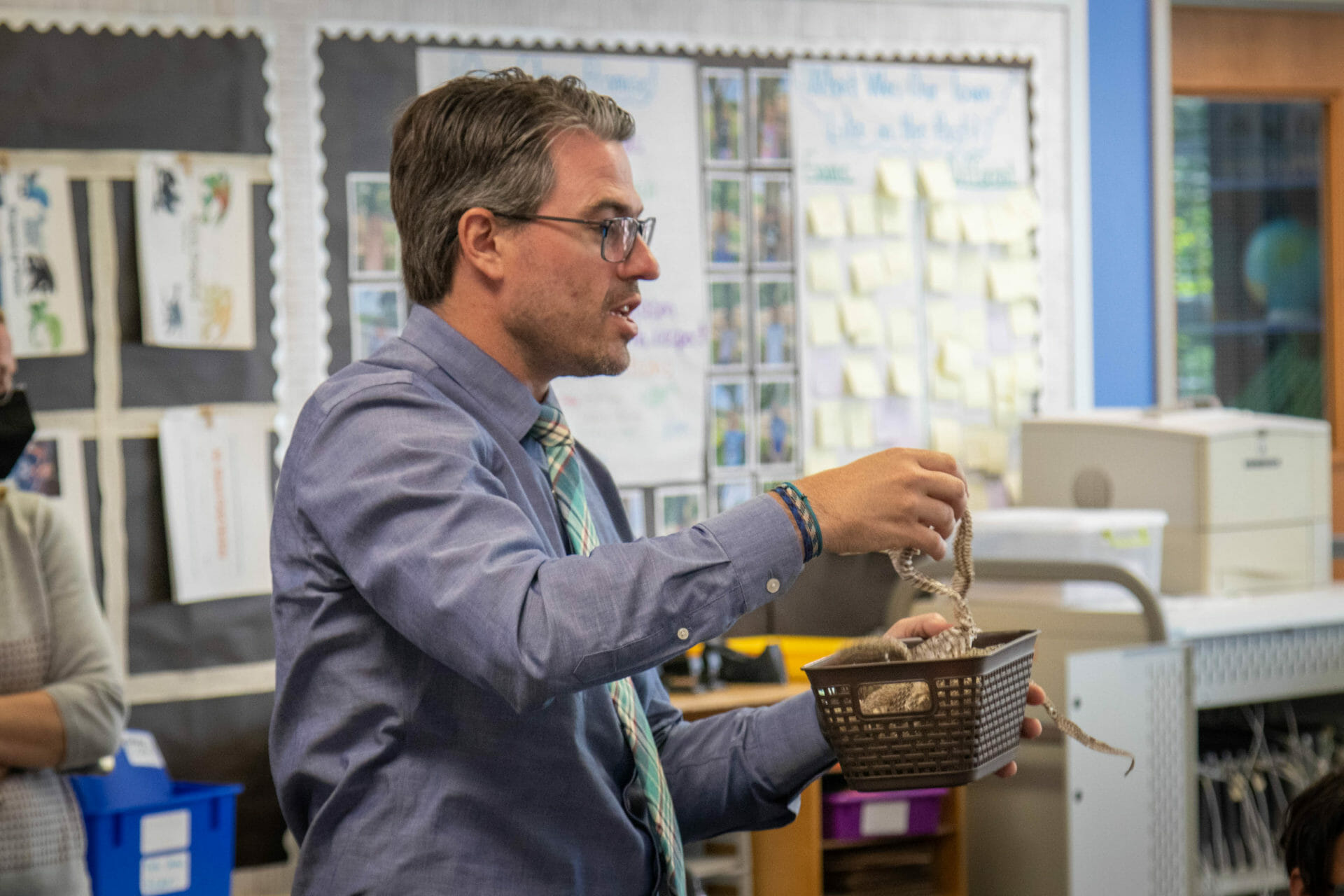Third graders were excited to slither into class on Monday morning to hear young alumna Palmer Mihalevich ’20 deliver a presentation about her research on snakes. Mihalevich, a rising junior at Rhodes College majoring in environmental science, has been studying the Louisiana pinesnake as part of a research internship at the Memphis Zoo. The pinesnake is at risk for extinction because it has a low reproductive rate and its only source of food, the pocket gopher, is declining in population. Mihalevich has been working to help the snakes reproduce as part of the species’ recovery efforts.
Once introduced by JK-12 Science Department Chair & Upper School Science Teacher Paul Zahller, Mihalevich talked to a very animated group of third graders about her work with pinesnakes. She shared how the Louisiana pinesnake is a nonvenomous constrictor. Students got to see photos of her holding these types of snakes and pictures of the eggs she helped them produce as part of her work. With Mihalevich, the third graders discussed the differences between venomous and nonvenomous snakes, the ways snakes capture their prey, and the flexibility of snakes when compared to the flexibility of human joints. They even got to touch snake skins.
Third grade has recently learned about ecosystems, so when Mihalevich shared about the predator-prey relationship, they caught right on. «Next year as fourth graders, we’ll kick the year off with a food chain study, and Palmer’s work today laid a great foundation,» said Laura Pupillo, Lower School Science Specialist. «In addition, this particular group of students have been interested in snakes. Not only did this opportunity connect students to a former MICDS graduate; it allowed for an exciting student interest study to develop more.»
Lastly, Mihalevich answered lots of questions from the third graders, their teachers, and Zahller. How do you become a scientist? they wanted to know. She said, «You’re already well on your way in third grade when you ask lots of questions. Remember that you always want to stay curious.» What’s next for the Louisiana pinesnakes? She assured students that the research will continue on as scientists figure out how to best help the pinesnakes reproduce.
In closing, Mihalevich said, «If you’re nervous or you’re not really interested in something, the least you can do is always give it a try. You never know, it might be your favorite thing in the world. Always be curious.» Thank you for taking the time to inspire our third-grade Rams who may one day become scientists as well!
